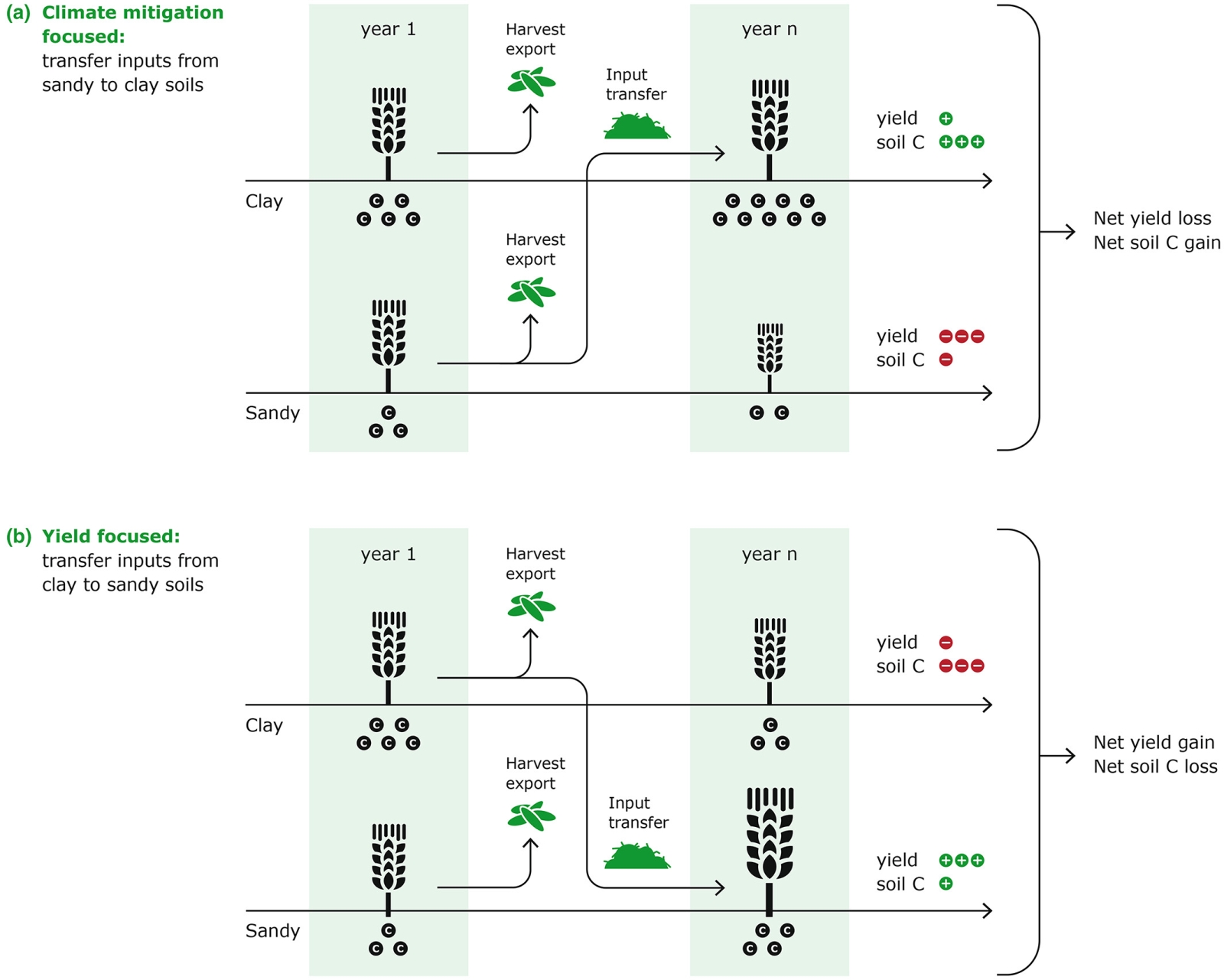January 16, 2023 | Global Change Biology |
Introduction: The concept of soil organic carbon (SOC) sequestration as a solution to both climate change and food insecurity is gaining attention. Scientists from Wageningen University in Netherlands critically evaluates the potential benefits of global SOC sequestration strategies on climate change mitigation and food production.
Key findings: Considering SOC saturation, the research team reveals that the expected contribution of SOC sequestration to climate change mitigation could decrease significantly by 2100. Additionally, an analysis of multiple studies shows inconsistent yield effects associated with increasing SOC, suggesting that the promised win-win outcome depends on specific land management practices and conditions. In conclusion, the authors advocate for a shift towards soil-smart agriculture, tailoring practices to local contexts and considers multiple soil functions simultaneously, maximizing synergies for land sustainability and meeting agronomic needs for food security (Read more).

Figure | Conceptual figure illustrating potential conflicts between soil organic carbon (SOC) sequestration and food production. The figure depicts two hypothetical cases in which crop residues are removed from one field after harvest to be applied as OM inputs to another crop field. In panel a, residues are transferred from a sandy soil to a clay soil. After some years, a new equilibrium for SOC stock is reached. The clay soil gains more SOC than the sandy soil loses, due to its higher C stabilisation capacity. Therefore the net overall effect is that C is sequestered, to the benefit of climate (provided that no additional N2O or CH4 emissions would arise). The clay soil also sees crop yield increasing, but not as much as the yield in the sandy soil decreases, due to the stronger yield effect of organic amendments in sandy than clay soils. The net effect for yield is that less crops are produced overall. The reciprocal transfer, in panel b, leads to mirrored effects: Small yield loss in the clay soil and high yield gain in the sandy soil, and large CO2 emissions in clay soil and small SOC sequestration in the sandy soil with an overall SOC loss and aggravated climate change, but more food produced overall. Importantly, assuming that each field is owned by a different farmer, someone always loses. This clearly illustrates that local win-win scenarios can occur at the expense of fertility elsewhere.




